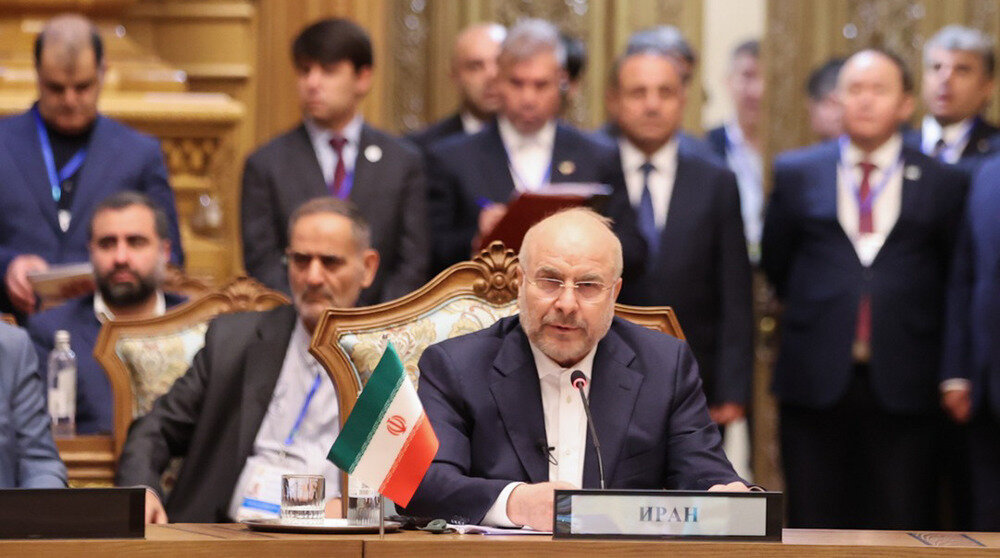Israel cannot conceal its failures with assassinations: Iran parliament speaker

TEHRAN – Iran’s Parliament Speaker, Mohammad Baqer Qalibaf, has strongly condemned Israel's ongoing assassinations of key Resistance figures and its violent actions across West Asia, asserting that such tactics will not conceal the regime's mounting failures.
Speaking at an international conference in Dushanbe, the capital of Tajikistan, marking the 30th anniversary of the adoption of the Tajik constitution, Qalibaf emphasized that Israel’s actions are accelerating its downfall rather than strengthening its position.
In his speech on Friday, Qalibaf criticized the Israeli government for relying on airstrikes and assassination campaigns, particularly in Palestine and Lebanon, to try and distract from its broader strategic missteps.
"The Zionist regime must understand that it cannot cover its strategic failures through these violent measures," Qalibaf remarked. He further added that these acts of violence highlight Israel's incapability to effectively challenge the Palestinian and Lebanese people, noting that these crimes have exposed the regime’s growing vulnerability.
Qalibaf also highlighted the significant civilian casualties in the wake of Israeli military operations in Lebanon and Gaza.
With over 2,000 Lebanese lives lost, he called for an immediate ceasefire and urged global parliamentary leaders to take a stand against Israel’s killing of innocent women and children. He stressed that the world’s lawmakers bear the responsibility of supporting calls for justice and freedom for oppressed people in these regions.
The regime’s bloody onslaught on Gaza, which started from October of last year, has so far killed more than 42,010 Palestinians, mostly women and children, and injured 97,720 others. Thousands more are also missing and presumed dead under rubble.
‘Tehran willing to deepen ties with Dushanbe’
During his address, Qalibaf also touched on the historic and cultural bonds between Iran and Tajikistan, underscoring Tehran’s willingness to deepen bilateral ties. He emphasized that strengthening relations between the two nations would not only benefit their own people but would also enhance stability and prosperity throughout the broader region.
The Iranian speaker noted that the convergence of Iran and Tajikistan could serve as a model for fostering peace and cooperation in Central Asia and beyond. “These ties are rooted in a shared cultural history, and expanding them will contribute to the security and development of the region,” he said.
In addition to addressing regional conflicts, Qalibaf proposed a new initiative aimed at promoting regional parliamentary cooperation. He suggested the creation of a “Parliamentary Convergence Agreement for Peace and Sustainable Development,” which would encourage dialogue and cooperation among the legislative bodies of regional countries.
Qalibaf highlighted a series of global challenges—such as terrorism, extremism, unilateralism, and climate change—arguing that effective, collective action is necessary to tackle these threats. “Bilateral, multilateral, and regional cooperation are essential to confront the dangers we face in today's world,” he said.
He stressed that such an agreement among regional parliaments could serve as a platform for resolving misunderstandings and promoting meaningful dialogue, leading to greater regional stability and progress.
The proposal, he noted, would be a significant step toward fostering peace and sustainable development, creating opportunities for political and economic collaboration in the region.
